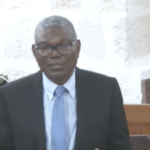Government is taking significant steps to address housing challenges and provide enhanced social assistance for individuals and families in need of rent aid.
Recent data indicates a gradual decrease in applications for rent assistance, a trend attributed to the country’s recovery from COVID-19 and the resumption of normal economic activities.
Minister of People Empowerment and Elder Affairs, Kirk Humphrey says in 2021, the welfare department received 1 250 new applications for rent assistance. The number dropped to 1 143 in 2022, and further to 1 009 in 2023. Despite this decline, the number of people requiring assistance remains a concern, particularly among mothers with children facing eviction.
“… but again, 1 000 persons is still too high, which happened I think as a consequence of COVID. I would like to urge … whether it is from family members or landlords; steady your hand, if you can.
“Work with government in those circumstances to see how best we can help persons before they actually end up on the street. [Let us] ensure that we are not in a situation where these things that are avoidable, become unavoidable and we have to respond instead of doing it in a way that is preventative,” he urged.
Humphrey noted that, between 2010 and 2018, there was a noticeable change in the government’s approach to rent aid. Previously, rents were paid promptly by the welfare department, but delays post-2010 led to a significant distrust in the government’s ability to make timely payments. This situation prompted the government to reassess its strategy and make adjustments to regain public trust.
“We would have run a couple of ads, inviting persons to come in and rent to the welfare department or to the government to allow us to house some of these persons who would have been displaced as a result of the climate crisis or a result of a family situation or, just because of the economic realities of the day.
“The initial response was not as appealing or as exciting as I would have liked. And we’ve made some adjustments to what we are prepared to offer the public,” he said.
Key changes include removing the $800 cap on welfare rent aid, with the Ministry now offering negotiable rents based on property evaluations. Another major change is the inclusion of utilities in the rent paid by the government.
“We have already been offering $1 500 and $2 000 rents and these are negotiable, based on when we send the officers what they find. So if the conditions merit higher rent, then we will negotiate. We are saying as well that your rent must include utilities so that when [we] pay, we pay the rent as well as utilities [as] part of that.
“[Also] Government is now prepared to pay the person three months’ rent upfront. It could be first, last and deposit for three months … however you choose to have it … but three months. [This is] to give [landlords] the assurance that you will have the comfort of knowing even if there are some delays. You already have three months’ rent payments in your hand,” the minister added.
He revealed the Ministry of Housing will soon launch an ad campaign, inviting Barbadians with suitable rental properties to consider renting to the government. In addition to highlighting the benefits of this arrangement, it will lay out information regarding the upfront payments, the inclusion of utilities in the rent and also, a commitment to ensure tenants respect property rules and maintain the condition of the rented units.
“ … and that facility is available now. We will be running the ad from next week but that facility is available now. We are willing to receive persons now and if they qualify, to offer three months’ rent.
“These are all the things we are trying to make accommodation available so we can ensure that we can offer better social assistance to the persons who are most in need …,” Humphrey said.
(RG)
The post Government taking steps to address housing challenges appeared first on Barbados Today.


